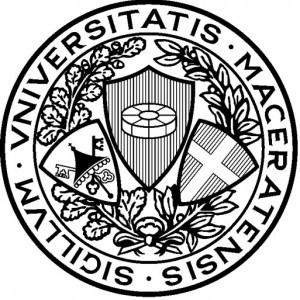Photos of university / #uofglasgow
This undergraduate programme in International Finance and Economic Policy at the University of Glasgow offers students a comprehensive education in the core principles of global finance, economics, and policy analysis. Designed to equip graduates with the skills needed to understand and address the complex financial and economic issues faced by governments, international organizations, and private sector entities, this programme combines rigorous academic training with practical insights. Students will explore a wide range of topics including international monetary systems, exchange rates, fiscal and monetary policy, economic development, and the regulation of financial markets. The curriculum emphasizes critical thinking, quantitative analysis, and real-world applications, ensuring graduates are prepared for careers in finance, policymaking, consultancy, or further academic study. Throughout the programme, students benefit from a diverse and experienced faculty, access to cutting-edge research, and opportunities for internships and collaborative projects. The University of Glasgow’s strong links with international financial institutions and policy centers provide valuable networking and experiential learning opportunities, enhancing employability. By the end of the course, students will have developed a deep understanding of how global financial systems operate, the impact of economic policies on different economies, and how to formulate informed, effective financial strategies. This programme is ideal for individuals passionate about understanding the economic forces shaping our world and eager to contribute to sustainable financial and economic development across the globe.
The MSc in International Finance and Economic Policy at the University of Glasgow offers a comprehensive and in-depth exploration of the core principles and contemporary issues in international finance and economics. This program is designed to equip students with a strong theoretical foundation as well as practical skills necessary for a successful career in financial institutions, governmental agencies, and international organizations. Throughout the course, students will examine the global financial system, including financial markets, instruments, and institutions, and analyze the factors that influence international economic policy decisions.
The curriculum covers a wide range of topics such as international monetary systems, exchange rate dynamics, financial regulation, fiscal policy, and economic development. Students will explore how global economic integration impacts national economies and learn to critically assess policy responses to financial crises, economic growth challenges, and emerging market issues. The program emphasizes quantitative analysis, teaching students how to employ advanced econometric and statistical tools to interpret economic data and inform policy-making. Practical case studies and real-world examples are integrated into the syllabus to enhance understanding of complex economic phenomena and to develop analytical and problem-solving skills.
In addition to core modules, students have the opportunity to specialize in areas such as currency markets, international trade, or financial regulation, tailored to their career interests. The program also features a dissertation project, where students undertake independent research on a relevant issue in international finance or economics, applying the skills and knowledge gained during their studies.
The university's strong links with industry and policy-makers provide students with valuable networking opportunities, internships, and guest lectures from leading experts in the field. The MSc programme aims to produce graduates who are analytical, strategic, and well-prepared to address the financial and economic challenges faced by countries and organizations worldwide, fostering careers in sectors such as banking, finance consultancy, government departments, and international institutions.
The International Finance and Economic Policy program at the University of Glasgow requires prospective students to possess a strong academic background in relevant subjects such as economics, finance, mathematics, or related disciplines. Applicants must submit academic transcripts demonstrating their proficiency in these areas, alongside a personal statement outlining their motivation and suitability for the program. For international students, proof of English language proficiency through tests such as IELTS or TOEFL is mandatory, with minimum scores specified by the university. The program demands applicants to meet specific academic criteria, often a first or upper second-class honors bachelor’s degree or equivalent, in a relevant field. In addition to academic qualifications, applicants are encouraged to showcase relevant work experience or internships in finance or economic policy, which can strengthen their application. The admissions process involves the evaluation of educational background, personal statement, references, and, where applicable, interview performance. The program emphasizes analytical skills, quantitative reasoning, and a thorough understanding of global financial markets and economic policies. Students are expected to have foundational knowledge in microeconomics, macroeconomics, and statistics prior to enrollment. During the course, students will develop critical thinking, advanced analytical abilities, and research skills necessary for careers in international finance, policy-making institutions, or financial consultancy. The program also includes coursework and projects that require data analysis, economic modeling, and the interpretation of financial data in a global context. Successful completion of the program typically requires earning a specific number of credits through coursework, examinations, and a dissertation or research project. The curriculum is designed to prepare graduates for high-level roles in governmental organizations, financial institutions, international agencies, or private sectors involved in economic and financial policy development worldwide.
Funding options for the International Finance and Economic Policy program at the University of Glasgow typically include a range of scholarships, grants, and loan schemes available to both domestic and international students. The university offers various bursaries and financial aid packages aimed at supporting students financially throughout their studies. Prospective students are encouraged to explore the university’s dedicated funding and scholarships webpage to identify specific awards they may be eligible for, such as merit-based scholarships or subject-specific bursaries. Additionally, students from the UK might have access to government-funded student loans, including the Student Loan Company (SLC) programs, which can cover tuition fees and living costs. International students often seek funding through external sources such as government scholarships from their home countries, international organizations, and private foundations, many of which have partnerships or recognition agreements with the university. The university also provides information on part-time work opportunities for students to supplement their income, including on-campus roles and internships related to their field of study. Moreover, some students may qualify for research council funding if they intend to pursue postgraduate research, although this is more common at the doctoral level. The university’s financial support services assist students with application processes for various funding options, and tailored advice is available through the student services center. Overall, the financing landscape balances institutional support, external funding avenues, and personal financial planning to ensure students can focus on their academic and career aspirations in international finance and economic policy.
The MSc International Finance and Economic Policy at the University of Glasgow offers students a comprehensive understanding of the global economic environment and financial markets. This programme is designed to equip students with the analytical skills and knowledge necessary to navigate complex financial systems and economic policies on an international scale. The curriculum covers a wide range of topics including international financial markets, economic policy analysis, global financial stability, and sustainable economic development. Students will engage with cutting-edge research and theories in economics and finance, gaining insights into how financial institutions operate across different countries and the impact of economic policies on global markets.
The programme emphasizes a multidisciplinary approach, integrating economic theory with practical financial applications. Participants will develop advanced quantitative skills through modules on econometrics, financial modeling, and data analysis, preparing them for careers in banking, finance, policy analysis, and international organizations. The teaching approach combines lectures, seminars, and case studies, fostering critical thinking and problem-solving abilities. Students also have opportunities to participate in group projects and presentations, enhancing teamwork and communication skills.
The MSc degree typically requires one year of full-time study. Admission criteria generally include a strong academic background in economics, finance, or related disciplines, along with a good command of English. The programme is suitable for graduates seeking to deepen their understanding of international financial systems and economic policy or aiming to pursue careers in international finance, economic consultancy, or governmental agencies. The University of Glasgow’s strategic location and strong connections with financial institutions provide students with relevant networking opportunities and access to industry professionals.
Graduates of this programme will be well-positioned to work in multinational corporations, international financial institutions, government agencies, and non-governmental organizations involved in economic development and financial regulation. The skills gained will also enable graduates to analyze economic policies critically, evaluate their implications, and contribute to financial and economic decision-making processes at an international level. The university offers excellent support services for career development, including career workshops, internships, and networking events, helping students transition successfully into their professional careers.
Overall, the MSc International Finance and Economic Policy at the University of Glasgow offers an in-depth and globally-oriented education that blends theoretical knowledge with practical skills. It prepares students not only to understand the complexities of international finance and economic policy but also to apply their knowledge effectively in the dynamic global marketplace.









